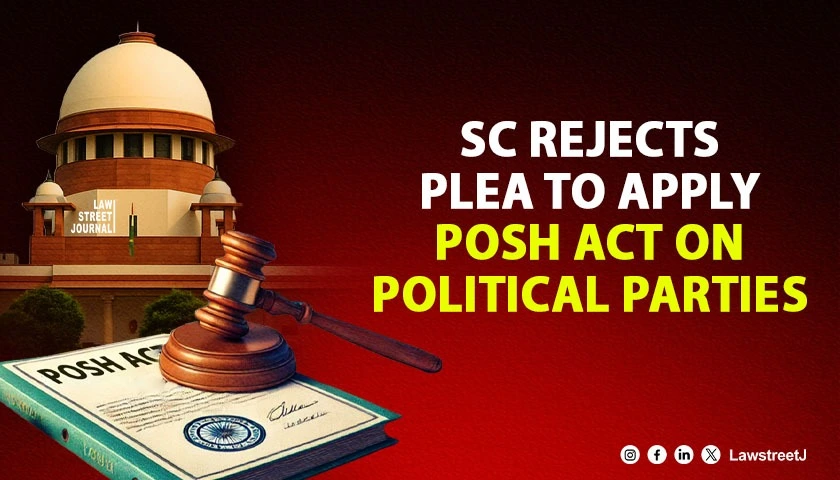NEW DELHI: The Supreme Court on Monday dismissed a plea against the Kerala High Court's 2021 judgment, which declined to bring the political parties under the ambit of the Sexual Harassment of Women at Workplace (Prevention, Prohibition and Redressal) Act, 2013 (POSH Act).
A bench of Chief Justice of India B R Gavai and Justices K Vinod Chandran and Atul S Chandurkar said joining a political party is not akin to employment.
The court also orally observed that applying the POSH Act to political parties would open a Pandora's box and become a tool for blackmail and misuse.
Senior advocate Shobha Gupta, appearing for the petitioner, contended the definition of an 'aggrieved woman' under the Act was a broad one and would include anyone whether employed or not.
The counsel questioned the High Court's view that unless employed, the aggrieved woman can't invoke the provision.
The court, however, asked, "How do you fit political parties in a workplace?" She replied that this an organisation.
To this, the bench said, "when a member enters the political party, it is not a job. This will open a Pandora's box to blackmail the members".
The bench thus dismissed the plea.
On August 1, the court had refused to entertain a PIL for bringing political parties within ambit of the 2013 law, saying it was a matter of legislative policy.
The bench had then said the court can't interfere into the matter, as this fell within the domain of Parliament.
The court had then suggested the petitioner's counsel senior advocate Shobha Gupta to get some women Parliamentarians on board and present a private member bill.
The counsel had then contended the political parties would constitute "workplace" and "employer" within the meaning of the POSH Act, so they have to comply with the provisions to address sexual harassment of women political workers.
On December 9, 2024 also, the apex court had declined to consider the similar PIL by the petitioner asking her to approach the Election Commission as the poll panel is constitutional body that prevailed over and regulated the political parties.
Disclaimer: This content is produced and published by LawStreet Journal Media for informational purposes only and does not constitute legal advice. The views expressed are independent of any legal practice of the individuals involved.















